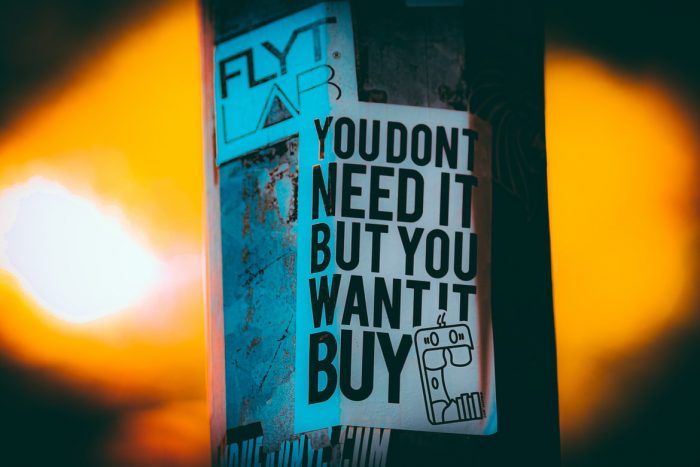I can recall a time when there was no such thing as “Cyber Monday”—can you?
A quick Google search tells us that the first Cyber Monday occurred 16 years ago, created by Ellen Davis and Scott Silverman, though Davis is solely credited by numerous sources. A recent article published in Reader’s Digest says Davis came up with the phrasing in 2005.
Cyber Monday didn’t just appear out of thin air though. It was based on the trending surge of online retail purchases and general traffic on the Monday following Thanksgiving. But once coined, the annual event was set and has become a trending term (and hashtag) ever since.
Makes sense. At Thanksgiving we typically spend it with the people we’re going to see again on Christmas.
Over time, the Cyber Monday concept grew as more retailers participated and marketed their own Cyber Monday deals. It would take almost 10 years for Cyber Monday to overtake Black Friday as the “biggest online shopping day” nationwide.
Sales continue to grow. The National Retail Federation projects an increase of 8.5 to 10.5 percent in holiday sales this year. We’re talking about hundreds of billions of dollars being spent in November and December.
It’s marketing genius. It really is.
To notice a trend and come up with a catchy phrase that goes along with it and encourage retailers to use it to market their sales—genius and maybe some luck, too.
The thing is, these shopping days only have power because we give it to them. We, the consumers.
It is we who feed the system with our hard-earned dollars (and bitcoin) because we want to take advantage of these discounts. My family participates, too. Because why not?! I would much rather purchase items at a discount from the comfort of my own home than get up at some crazy early hour to wait in line at the local retailer with a bunch of other people.
I know some people enjoy that whole thing, but it’s just not for me. I like sleep too much and I’m not a fan of long lines or lots of people vying for the same stuff. That, and I’ve seen too many videos now of violence breaking out over greed and feeling like someone took something someone else wanted. No, thanks.
Part of me questions why we need shopping events like Black Friday and Cyber Monday, except as a means of boosting end of year sales. I’m okay with businesses offering these last-ditch sales to promote their products and boost revenue before closing out the year. It also allows smaller retailers to get in on the game.
But I think it’s important that we don’t lose sight of the fact that it is a game. One that we get to choose to participate in.
Not only do we get to choose whether we participate, we get to decide how.
Over the last few years, I have really tried to spread my buying power between small, local businesses and smaller online retailers, prioritizing sustainable eco-friendly operations whenever possible. I still get a number of items through Amazon—I’m not demonizing any of it. So, yes, I participate in it, too, at varying degrees.
I’m happy to see so many new eco-friendly retailers popping up in the last few years. We need to really change the way we consume. If we would only realize our power in the game. Even small changes affect percentages that then help retailers learn what consumers need and want.
I want to buy my kids stuff that will help them have fun, learn, and grow, but that isn’t going to necessarily end up in some landfill, releasing toxins, contributing to the demise of this planet. I’m still a proponent of experience gifts, functional art, handmade gifts, and gifts that help people in their everyday lives like massages and other self-care services.
It’s less about “stuff” than it is about the thought behind what was given. It’s the connection being made because you thought enough of someone to get this gift for them. I’m trying to teach my kids that the amount of stuff they get doesn’t equate to the amount of love we feel.
Often, I think there’s this idea that if we love our kids we’re going to get them all of this stuff so they know how loved they are, but there are children growing up in families who are given more than they could ever want and still feel disconnected, uncared for, and unloved by their parents because it was never about stuff!
It’s about time, attention, affection, encouragement, communication, and unconditional love.
We are called consumers for a reason. It’s our nature. But we don’t have to be unconscious about it. We can instead see that how we spend our money, what we give our time to, and what we do with all of it matters. We can use currency to build community and relationships.
Questions I’ve been reflecting on:
>> Where am I spending my dollars today?
>> Do my purchases align with my values?
>> Rather than buy “stuff” can I spend money on services or experiences instead?
>> Are there any small online retailers that I could support with my buying power?
>> Are there items I could delay purchasing that I’d be willing to spend a little more on to support a friend’s business?
I hope we will choose to become more conscious consumers. If 2020 and the time of COVID-19 taught me anything, it’s that the choices I make do matter, they do affect others, and what I support speaks to my values and is a reflection of me.












Read 4 comments and reply